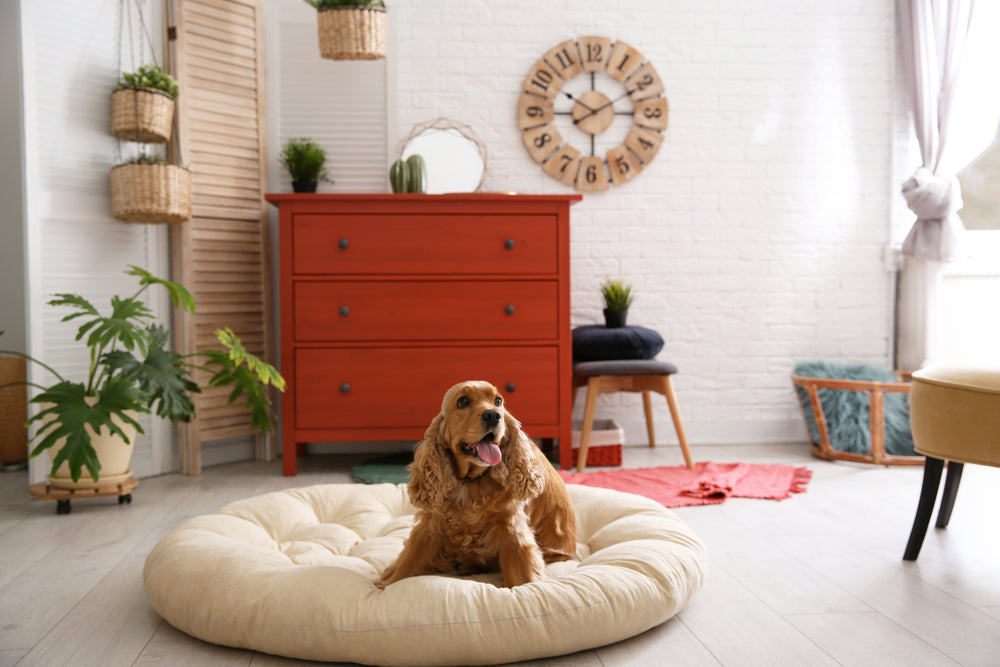Our 7 Best Tips to Stop Your Dogs Excessive Barking
Posted by Don Hesh on Feb 11, 2020
Dogs bark for a reason, and it's essential to understand that it's normal behaviour. At least for the most part! Dogs utilise barking as their 'voice', whether it be to communicate with their owners, warn off a threat or say a friendly hello to a fellow canine. However, excessive barking can become a significant problem for you (and your neighbours!) If this is something you're experiencing, you're not alone. We've come up with our seven best tips to put your dog at ease and stem their barking behaviour for good.
Tip #1 - Ignore the barking
This somewhat counter-intuitive tip is always an excellent first step. Especially if you've never tried it before. By engaging with your dog when they bark, they're probably getting what they're after- attention. So instead, ignore their barks and don't give them any attention. Don't acknowledge the noise in any way. Don't even look at them! To take this technique to the next level, you can try rewarding them with a treat AFTER they've entirely stopped barking.
This reinforces good behaviour instead of rewarding the bad! This option may not be the best option for every situation, if your dog barks for hours on end, it's not something you can ignore, even if you'd like to.
Tip #2 - Accustom your dog to the stimulus
Desensitising your dog to the specific cause is a great long term solution. Unfortunately, it relies on you knowing precisely what this is. Assuming you do, proceed by slowly introducing the item/animal/appliance to them over time. For example, the new vacuum cleaner. Start by using it far away from your dog, but within sight. Feed your dog treats as you move the vacuum cleaner moves closer. Eventually, your dog will associate the stimulus with treats and have no reason to bark at it anymore. Good luck!
Tip #3 - Remove the reward
Nine times out of ten, a dog barks because it gets some form of 'compensation' out of the behaviour. This compensation may be in the form of attention if you acknowledge their canine vocals. It could also be by interacting with another animal or successfully scaring away a perceived threat. Whatever it may, if you can identify the reward, you can take action to remove it and dismiss any incentive for your dog to bark.
Tip #4 - Switch attention, ask your dog for a different behaviour
Distract your dog from their barking. This might be as simple to giving your dog a completely different command, such as sitting. If your dog is trained and at least somewhat obedient, this can be a very effective strategy. Whenever your dog starts barking, command them to sit. This command should switch their attention and break their barking circuit. Experiment with different commands and see what works!
Tip #5 - Tire your dog out
A common cause of the barking is boredom and general frustration. If your dog has nothing to do, it makes sense they would bark as something to entertain themselves or release frustration. They can't watch Netflix or play video games like humans, so barking's the next best thing. Try getting them toys that they like, or any other equipment that keep them entertained throughout the day. Also, dogs need regular exercise, both physical and mental. Try taking your dog for a long walk. They probably won't have the energy to bark excessively, if at all, after a mini-marathon!
Tip #6 - Teach your dog a new command
Nothing sneaky here - try telling your dog to be quiet, the right way. Contrary to common belief, you can teach old dogs new tricks - it's never too late to try.
The secret lies in how you do the training. As we've established, it's not a very effective method to yell at your dog to be quiet. Instead, let's start by teaching your dog to bark. Stick with us, we promise it makes complete sense!
Give your dog a command to 'speak,' when they've barked a few times, pull out a yummy treat. When they stop barking to smell the treat, praise them and reward them for their quiet behaviour. Keep doing this until they associate controlled barking with 'speak.' Now you can teach them the 'quiet' command. After barking from the 'speak' command, say the word 'quiet' and introduce the treat. If you practice this enough, the 'quiet' command should be sufficient on its own to stop your dog from any barking behaviour.
Tip #7 - Organise a dog walker or 'minder'
If your dog's left alone for much of the day and you've tried every other tip, it might be appropriate to get your dog a visitor, or daytime home. It's easy to find a local dog walker online. They'll come round to your house as often as you'd like and take your paw-pal for a walk. Giving them positive attention and exercise when you can't. Alternatively, you could look into a daycare service, where you drop your dog off for the day. They'll get to play with other dogs and have a great time!
